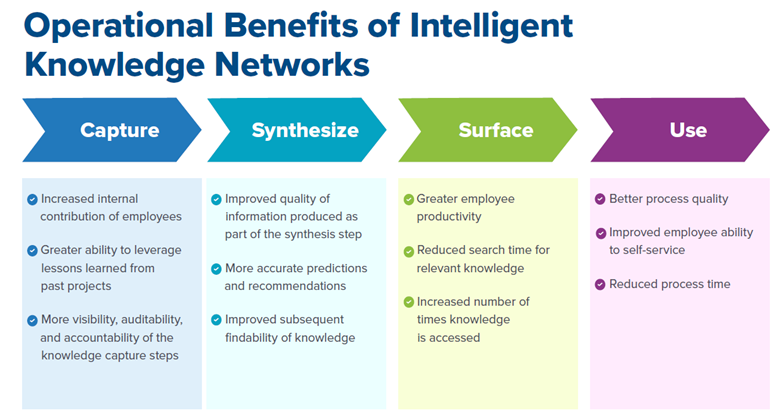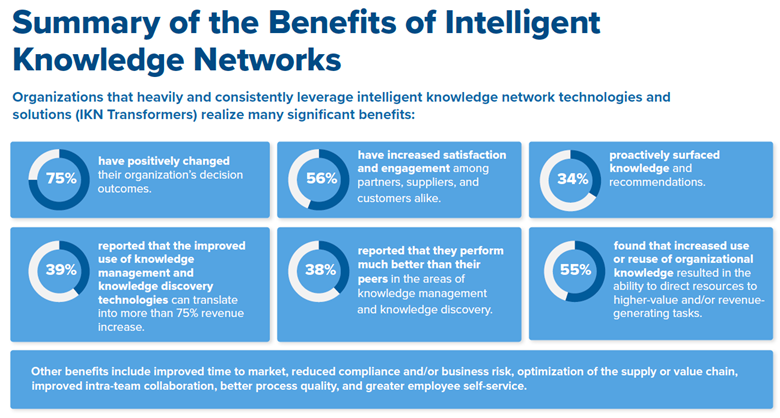
The bottom line for top-tier knowledge management users
Not every athlete will be a superstar. Not every musician will be a featured soloist at Carnegie Hall. And not every company that deploys a knowledge management (KM) system will optimize it and reap the full benefits from their implementation. Those that do, however, have a lot to gain, according to a recent study* by IDC.
IDC reported that intelligent knowledge network (IKN) “Transformers” – the most advanced KM user organizations (including Northern Light SinglePoint™ customers) – have systems that “contain the information and knowledge that employees need to effectively do their jobs. The combination of universal or near universal collection of information, advanced analysis and synthesis technologies, and automated and AI-based location and discovery technologies enable IKN Transformers to easily find the information they need in their daily work.”
And with those sophisticated systems, optimized for key strategic applications, come a wide array of business benefits:

IDC summarizes it this way: “Companies can reduce costs, increase productivity, see higher customer and employee satisfaction, and gain a competitive advantage.” To support this conclusion, IDC cites several specific examples from their interviews with corporate executives:
- Better organizational view of research equals cost savings by avoiding ad hoc purchases of research that another group may have already purchased — “There was an initial gain of $200,000 at that time.” Also, faster time to insights means better productivity. When capture and curation are largely automated, you no longer need 10 to 15 people.
- “We don’t want to pay our engineers to be searching for information. We want them to apply that information on solution development. We’ve estimated a 25% efficiency gain.”
And IDC also addresses the reality that ROI on knowledge management systems can be difficult to quantify:
- “We have so many use cases for indirect savings that are very difficult to quantify because how do you know? If you don’t go down the wrong exit on the way to your vacation, how do you calculate how much time you’ve avoided by not making a wrong turn? It’s very difficult to do.”
At the end of the day, IDC found that advanced KM user organizations reported IKN technology was propelling their operations forward in multiple ways:

So it’s fair to say that the bottom line on knowledge management is it can and does contribute to an organization’s bottom line – sometimes directly, sometimes indirectly – and the companies that do knowledge management well have a better shot at becoming the superstars of their industry.
[* IDC multi-client study, “Intelligent Knowledge Networks Survey Analysis”, document number US48814422, December 2021]